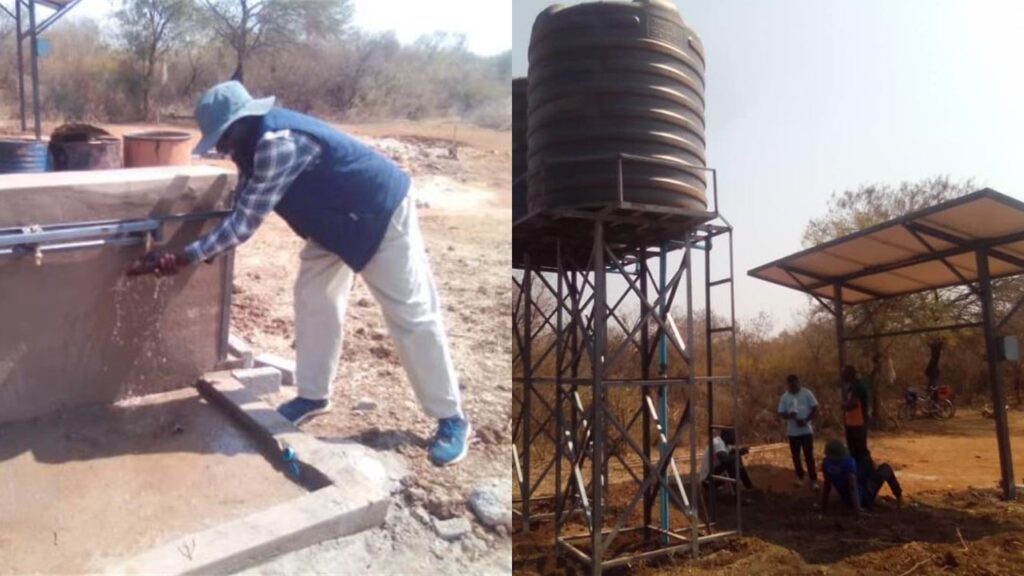The ripple effect: Clean water advocacy and community empowerment
In 2021, a group of 10 care champions and the then-ward councillor began their advocacy journey by engaging the Bubi Rural District Council (BRDC) to advocate for the upgrading of the Solar-Powered Piped Water System (PWS) that they had benefited from under the WE-Care Program. Community members, especially women, bore the brunt of the challenges posed by water collection, including the time-consuming waits in water queues due to water rationing, as the PWS was not providing adequate water for all 700 households.
With support from Bekezela Home-Based Care, five care champion representatives and the councillor engaged the BRDC, the District Water and Sanitation Sub-Committee (DWSSC), the Zimbabwe National Water Authority (ZINWA), and the private sector.
The goal of these meetings was to have unpaid care and domestic work (UCDW) recognized in local policies and budgets. The initial response from the stakeholders was tepid, as many officials were not familiar with the concept as a public issue. Undeterred, the care champions continued their advocacy work, highlighting how the upgrade would contribute to better economic productivity.
A breakthrough came when they secured a meeting with the then-Member of Parliament, Honourable Mguni, through the significant assistance of the DWSSC chairperson, Mr. V. Ncube, and the executive officer of Social Services from BRDC, Mr. V. Nhongo.
During that meeting, they presented a detailed report arguing that investing in care-related infrastructure and technologies, such as the solarized piped water scheme and the rehabilitation of boreholes, could unlock the potential of many women and girls and contribute to the community’s overall economic development.
As a result of that meeting, a task force was formed to further examine the issue and explore alternative options. This task force developed short-term and long-term solutions. The report by the task force and the councillor was presented at a full council meeting in November 2021, and a resolution was passed to upgrade the PWS using devolution funds. Initially, the Council had planned to buy a tipper truck for refuse removal. Beyond this success, care champions continued to pursue other funding opportunities and secured funding from the Member of Parliament’s Constituency Development Fund.
Following various follow-ups from Bekezela and the care champions, BRDC CEO Mr. Mlilo made a commitment to replicate the ward 15 PWS in other wards to reduce the time and distance that women and girls spend fetching water.
The local government’s recognition of and investment in UCDW infrastructure, along with the continued advocacy pushed by care champions with support from Bekezela, has had a significant impact in the district, as broader conversations are now taking place in different policy discussions.

In August 2024, the same community of ward 15 benefited from the Presidential Borehole Drilling Scheme, which enabled the installation of another solarized PWS in the community. The Presidential Borehole Scheme will benefit three other wards or communities, leading to an increase in the number of women occupying leadership positions through the formation of water point committees and participating in economic activities such as nutrition gardens.
This advocacy push by care champions has also motivated other communities to draft petitions to local government and the private sector to prioritize and invest more in care-related infrastructure. One of the care champions highlighted that their journey is far from over, as they are in the process of advocating for the establishment of day care centers.
The first photo shows a community leader washing hands in one of the taps in ward 15, while the second photo shows the PWS constructed under Presidential Borehole Scheme in ward 15. Photos by Meluleki Sibanda
